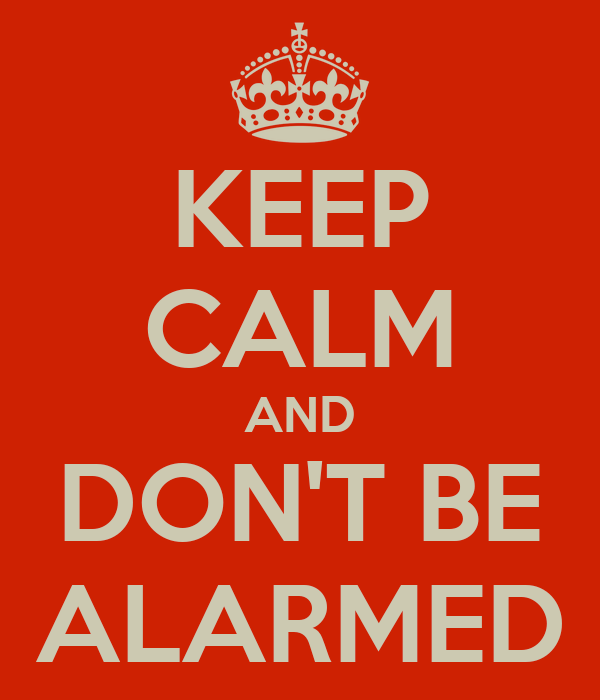1/ Q: I hear there has been a confirmed case of SARS-CoV-2 re-infection in Hong Kong?! How worried should I be?
A: Not very.
In the words of immunologist Dr. Akiko Iwasaki, “This is no cause for alarm - this is a textbook example of how immunity should work.”
A: Not very.
In the words of immunologist Dr. Akiko Iwasaki, “This is no cause for alarm - this is a textbook example of how immunity should work.”
2/ What do we know? In a press release Monday, researchers described the first confirmed case of re-infection in a 33-year old Hong Kong man returning from Spain. https://www.nytimes.com/2020/08/24/health/coronavirus-reinfection.html?fbclid=IwAR0vE_BVb69lg8lNZ-8bUc4IoKpbdzKQf8qlQ5fCjXLbdt_FcxwMHXRb4a0">https://www.nytimes.com/2020/08/2...
3/ How do we know this was a new infection? The genetic signature of the second infection was slightly different from the first infection, providing strong evidence for separate infections rather than a relapse of the same infection.
4/ The patient was infected with SARS-CoV-2 four months prior in Hong Kong with mild symptoms. He then tested positive upon re-entry into Hong Kong from Spain but with no symptoms.
5/ So WHY is this not cause for alarm?
• The 2nd infection was asymptomatic, so while immunity didn’t block detectable infection, it protected from disease.
• The individual had no detectable antibodies after his 1st infection, while most COVID patients DO.
• The 2nd infection was asymptomatic, so while immunity didn’t block detectable infection, it protected from disease.
• The individual had no detectable antibodies after his 1st infection, while most COVID patients DO.
6/ • The individual did produce antibodies after the second exposure, consistent with the immune system eliciting a stronger response with repeated exposures.
• This is one case out of millions, so we don’t know if this is a rare event or something that will be the norm.
• This is one case out of millions, so we don’t know if this is a rare event or something that will be the norm.
7/ What questions does this raise?
 https://abs.twimg.com/emoji/v2/... draggable="false" alt="1️⃣" title="Tastenkappe Ziffer 1" aria-label="Emoji: Tastenkappe Ziffer 1"> Even with no symptoms, a re-infected person *may* be able to spread the infection to others, but the extent & duration of infectiousness compared to first infections is currently not known.
https://abs.twimg.com/emoji/v2/... draggable="false" alt="1️⃣" title="Tastenkappe Ziffer 1" aria-label="Emoji: Tastenkappe Ziffer 1"> Even with no symptoms, a re-infected person *may* be able to spread the infection to others, but the extent & duration of infectiousness compared to first infections is currently not known.
8/
 https://abs.twimg.com/emoji/v2/... draggable="false" alt="2️⃣" title="Tastenkappe Ziffer 2" aria-label="Emoji: Tastenkappe Ziffer 2"> Since herd immunity relies on immune people *not* being able to infect others, this bolsters the consensus that the only safe & effective way to achieve herd immunity is through vaccination.
https://abs.twimg.com/emoji/v2/... draggable="false" alt="2️⃣" title="Tastenkappe Ziffer 2" aria-label="Emoji: Tastenkappe Ziffer 2"> Since herd immunity relies on immune people *not* being able to infect others, this bolsters the consensus that the only safe & effective way to achieve herd immunity is through vaccination.
9/
 https://abs.twimg.com/emoji/v2/... draggable="false" alt="3️⃣" title="Tastenkappe Ziffer 3" aria-label="Emoji: Tastenkappe Ziffer 3"> Recovered COVID-19 patients will also likely need to be vaccinated, and should also continue to take standard precautions to prevent transmission to others.
https://abs.twimg.com/emoji/v2/... draggable="false" alt="3️⃣" title="Tastenkappe Ziffer 3" aria-label="Emoji: Tastenkappe Ziffer 3"> Recovered COVID-19 patients will also likely need to be vaccinated, and should also continue to take standard precautions to prevent transmission to others.
Bottom line: KEEP CALM--in science ONE case never tells the whole story.
Bottom line: KEEP CALM--in science ONE case never tells the whole story.
10/ Dr. Iwasaki’s excellent thread with immune system visuals:
https://bit.ly/3lr29DE
Great">https://bit.ly/3lr29DE&q... new piece on potential types of immunity for SARS-CoV-2: https://www.statnews.com/2020/08/25/four-scenarios-on-how-we-might-develop-immunity-to-covid-19/?fbclid=IwAR1FtImrEnrMj3S__Yvw6IDMBzWv0H6dHmt6FLDLmYNFqFOOpRK1tSm6IrA">https://www.statnews.com/2020/08/2...
https://bit.ly/3lr29DE
Great">https://bit.ly/3lr29DE&q... new piece on potential types of immunity for SARS-CoV-2: https://www.statnews.com/2020/08/25/four-scenarios-on-how-we-might-develop-immunity-to-covid-19/?fbclid=IwAR1FtImrEnrMj3S__Yvw6IDMBzWv0H6dHmt6FLDLmYNFqFOOpRK1tSm6IrA">https://www.statnews.com/2020/08/2...

 Read on Twitter
Read on Twitter


